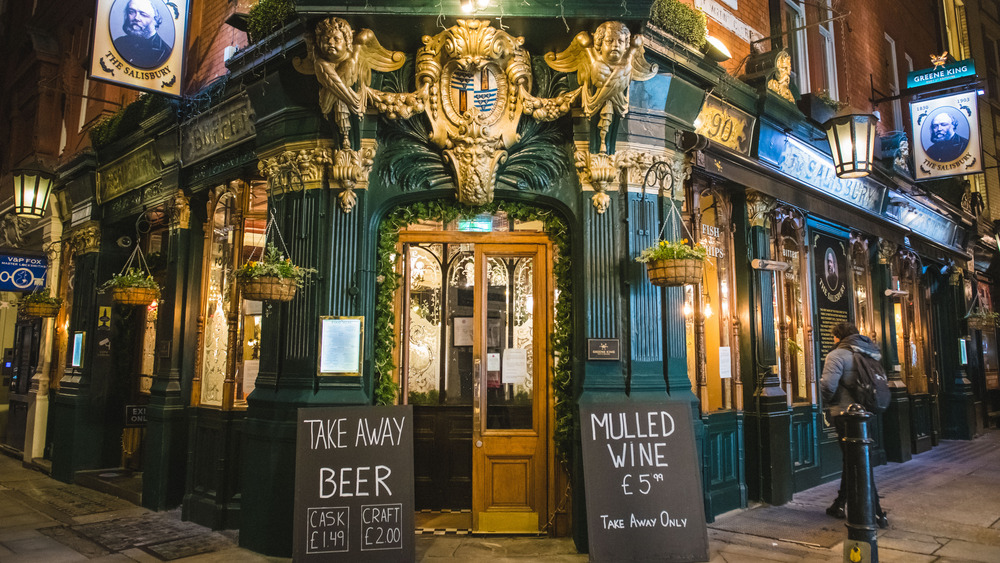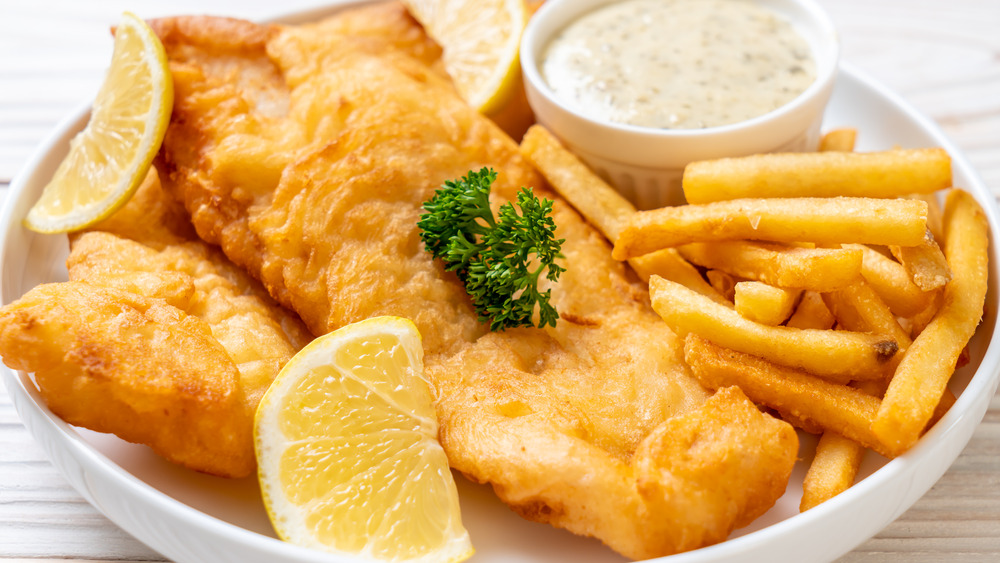Why Do Foods Have Different Names In The UK And US?
Playwright George Bernard Shaw is credited with coining the famous quote, "England and America are two countries separated by the same language" (via Forbes), and this is probably never more evident than when talking about food. When watching a British cooking show or following a recipe by someone native to England, you may feel like you need a translator. French fries are chips. Potato chips are crisps. And what is black treacle exactly? It's dark molasses, actually. But why do we have different words in the US and the UK if we all speak the same language?
Well, it turns out, it's primarily due to the influences other countries, and immigrants, have had on the culture of cooking. According to Vox, whereas the British have been more inspired by the French — and hence use French-based terms like courgettes — the United States has been more influenced by Italians, who gave us the word zucchini to describe the same variety of squash.
The use of different words can be such a problem that The Spruce Eats has even come up with a fairly comprehensive and handy British English to American English Recipe Translator that, in alphabetical order, decodes everything from bap vs. hamburger bun to Swede vs. rutabaga.
Geography and social standing have also been significant factors in cooking languages
England's proximity to the rest of Europe, particularly France, also played a role in the shaping of word usage in the UK. After the Norman Conquest in 1066 (one of the world's shortest wars), French became the language of the powerful and the upper class (per The Conversation). By the turn of the 20th century, Acclaro reports, English society also saw French cuisine as the food of the elite.
France has also had an overwhelming influence on the terms used in the larger culinary world, due to its longstanding reputation as the center of gastronomy. When Chef François Pierre La Varenne wrote the cooking bible Le Cuisinier François in 1651, Acclaro continues, it was the first time that recipes and techniques of French cuisine had been written down.
One of the reasons we also sometimes spell the same word differently, also has to do with the codifying of the English language. As the English speakers in the original American Colonies were so geographically separated from Britain, gradually over time the word spellings and pronunciations began to diverge. According to the Oxford International English Schools, the spelling of words was not fully codified until Samuel Johnson's first English dictionary in 1755. Noah Webster's American dictionary, using common American spellings, followed in 1806 (per Merriam-Webster) that gave us the language — and cooking verbiage — we use in America today.

